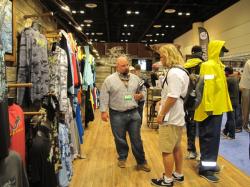A recent article in the Griffin Daily News about the sounds of summer while growing up, written by a guy that grew up in a suburb, brought back many memories. Although he had some of the same memories as me, there were many unfamiliar to this country boy, and he did not mention many that were important to me.
He told of the different ways parents had of getting their kids home in time for supper. My parents blew the car horn three times. From our house on top of a hill I could hear that distinctive sound for a very long way. And I knew I better high-tail it home since my parents insisted the whole family sit down together every night for dinner.
I was too far from any neighbors to ever here them talking, or even yelling inside their houses no matter if the windows were open or not. But at night I did hear crickets, spring peepers, the sound of distance thunder that seemed to be present every summer night, and the clucking of chickens. Since we had 11,000 laying hens and kept lights on all night to encourage laying more eggs, that sound lasted all night.
Car sounds were very unusual after dark, and not very common during the day. Before I was school age the main road that ran in front of my house was dirt. Sometime around the time I started school the county put down tar and gravel. That made for a better road, but not much. The gravel was put down in a thick layer and gravel sprayed on it. The tar kinda kept the rocks in place.
The sounds of passing cars changed from a soft grinding in the sand to a crunching as the tires ran over the rocks, and an occasional clank when a piece of gravel was thrown up into the fender well.
It was not unusual for me to come in during the summer with tar on my feet. I wore shoes only on Sunday during summer vacation from school, and walking on the road after the sun heated the tar was guaranteed to get it on my bare feet. So the sounds of me fussing about mom scrubbing my feet with turpentine to get it off was pretty common, too.
We had something else in common, that city boy and me. Apparently he lived on the edge of the suburbs since he talked about damming creeks, building tree houses and camping out. I did all that, so the sounds of hammering and sawing were pretty common, as were the sounds a shovel of sand makes hitting the pile for the dam or being poured into croaker sacks.
I will never forget the sound a butcher knife makes slicing into a cold watermelon, then the crack as it is split apart. We ate watermelon at least once a week during the summer. Since we had a walk in cooler for the eggs we always had six or eight in there ready to eat.
The sound of bacon sizzling, eggs frying and the toaster popping up were daily indoor sounds. But the bacon and eggs cooking outside while we camped out sounded different, and better, somehow.
Another sound of the summer was the whoosh of daddy’s fish fryer under the carport. It was sometimes frying fish, but much more often it was boiling water to blanch corn, string beans, okra and other vegetables from our garden that mom was freezing. His fish cooker was home made out of an old wheel rim, with a pipe in the middle that the gas line hooked to. It put out a flame thrower like column of fire that heated things up fast.
One of the most important sounds of summer to me was the plop of a cork hitting the water, or the gurgle of a Jitterbug wobbling its way across the surface of a pond. Fishing was one of my favorite activities, even back then, and I went several times each week. It didn’t matter if we were fishing red wigglers dug behind the chicken house for bream or casting plugs for bass. I love it all, as I do now.
The sounds our bicycles made on the gravel and dirt roads, and the change to a whine when hitting asphalt ones, will always remind me of the fishing trips we made. My friends and I would ride our bicycles for several miles to farm ponds and spend a cool afternoon wading and catching supper.
I hope kids made some good memories of the sounds of summer this year.


